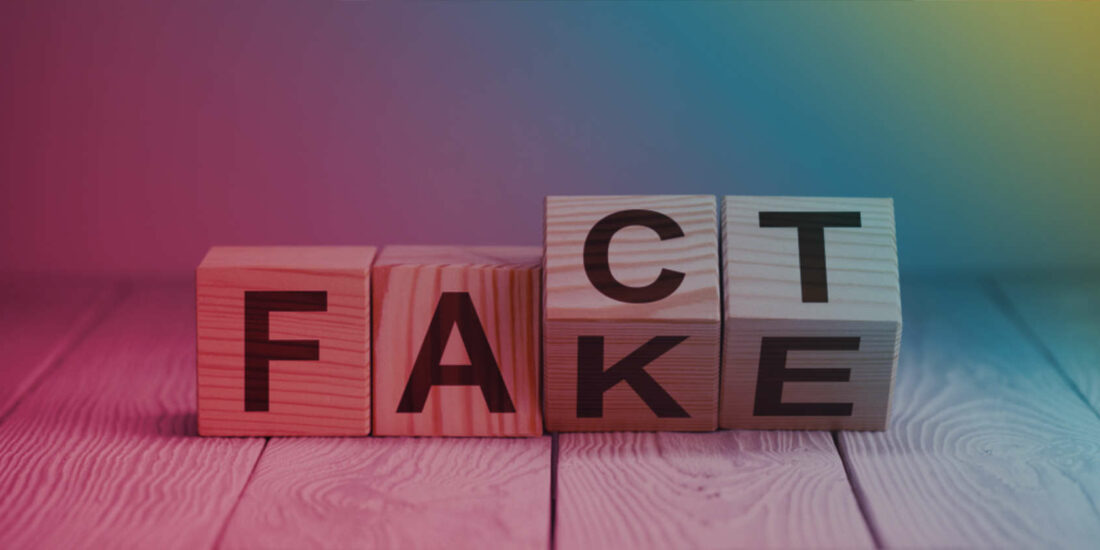
Mentoring
Mentorship. It is a well-entrenched idea within professional development and talent management circles. All respectable institutions wax lyrical about it in their recruitment drives and employees are encouraged to seek it out. It features in almost every appraisal discussion.
Yet, what exactly is this thing called “mentoring” and what is the essence of a meaningful mentor- protégé relationship?
In one definition of mentorship, the Association for Talent Development explains:
“Mentoring is a reciprocal and collaborative at-will relationship that most often occurs between a senior and junior employee for the purposes of the mentee’s growth, learning and career development. Often the mentor and mentee are internal to an organisation, and there is an emphasis on organisational goals, culture, career goals, advice on professional development and work-life balance. Effective mentors often act as role models and sounding boards for their mentee and provide guidance to help them reach their goals.
Mentoring can be formal or informal. In an informal environment, mentees set goals, but they are usually not measurable and the relationships are unstructured. For a formal mentoring relationship, there are actionable and measurable goals defined and set with determined requirements.”
Different mentoring techniques and models have emerged over time: one-on-one mentoring; group mentoring; peer mentoring; distance or e-mentoring and even, reverse-mentoring.
My Encounter with Mentorship
The vast majority of scholastic writing on this topic instruct that there are distinct “phases” in a mentoring relationship. These mentorship stages have been variously described, from the initial stage of preparing for the relationship, to the negotiation of expectations of the mentor and the mentee, followed by the process of enabling growth and concluding with a proper closure. These stages delineate a structured mentorship.
My own experience of meaningful mentoring has taken place within an informal and unstructured, rather than formal and systemized setting. As I reflect on those mentoring relationships, a few thoughts stand out.
Do We Really Need Mentors?
The different mentors I have had the privilege of learning from have been impactful role models who showed me how to approach work with a sense of purpose, dignity and compassion. They were the ones I counted on to help identify blind spots in my thinking and provide a different (more matured) perspective to how I saw things. They helped me stay the course when the demands of our vocation seemed too daunting and provided wise counsel when the time came for career choices to be made. They were, and remain today, amongst my “go-to” persons to talk through important professional decisions with.
If I did not have the benefit of the friendship and mentorship of these individuals, would my professional path have turned out differently? I cannot say for sure. But I am certain that my interactions with these mentors have helped sharpen and focus my mind in my early professional years and continue to influence how I analyse legal issues, evaluate professional/moral dilemmas and make judgment calls today.
Mentorship in Law firms – Is it for Real?
When I started out in practice in the early 1990s, wet behind the ears lawyers were called pupils (yes, not practice trainees). Pupils regarded it as our lot to work really hard and keep really long hours. It was par for the course. Almost always frantically striving to keep sane (and afloat), most of us did not intentionally hunt out mentors. Thankfully, though, starting out at a time when the profession was much smaller meant most of us invariably worked in small teams, directly and closely with partners and senior practitioners in our firms. Over time, these older and wiser colleagues became our work confidantes with whom we forged mentorship relationships. In this way, mine was a fortunate generation where, as young lawyers, we had the luxury of being mentored without our consciously seeking it out.
The training environment of today’s law firm is vastly different. To cope with the increased pace and demands of legal practice, teams are invariably larger. This can result in reduced direct contact time between the most senior practitioner and the most junior member on the team, thus making intentional and purposeful mentoring in law firms even more imperative.
Precisely because of today’s operating environment, mentoring should not be left to chance. Law firms need to take genuine steps to support and make mentoring a way of practice life. Junior lawyers, too, need to play their part, by actively and intentionally seeking out mentoring. Given, however, the demands and realities of practice, formal structured mentoring, no matter how well intentioned, is challenging to implement. Informal mentoring arrangements, on the other hand, are eminently feasible within law firms, regardless of size of firm (although admittedly, a potentially larger pool of senior practitioners can step up as mentors in a larger firm).
Identifying a Suitable Mentor
I have put forward the informal model of mentoring as a viable one for law firms and suggested that junior lawyers should take the initiative of seeking out suitable mentors for themselves. How then does one identify the right mentor? Good mentors, though hard to come by, are really not that difficult to spot. There are a few attributes I would look out for.
Compatibility
As mentoring is a relationship, it can only work if the two people in that relationship have some affinity towards each other. It is a relationship founded on mutual trust and respect. Such affinity, trust and respect can only come about through some prior interaction, whether in a work or social setting. For this reason, I am not a believer of mentoring programmes that “match” mentors with their mentees. Affinity cannot be force-fitted and any mentoring relationship which takes off on that basis is built on shaky ground. Although it is usual for the mentor to be the mentee’s direct supervisor, that need not necessarily be the case. A senior practitioner from another department in the same firm can be a suitable mentor. But fundamentally, some measure of compatibility must exist. For instance, one of my mentors is a transactional lawyer even though I am a litigator. Notwithstanding our different areas of practice, we share common values and beliefs on what practice can and should be and that makes us compatible as mentor and mentee.
Authenticity
Mentors do not need to be perfect; no one can be. They do, however, need to be genuine and willing to be open and transparent. You have to be able to see their humanity and be comfortable relating to them as a friend. It is of course important that a mentor be someone whose legal skills and abilities the mentee respects. That said, mutual respect and admiration though necessary, would not be sufficient for successful mentoring. The very accomplished and capable lawyer who has no interest in knowing and relating to the junior as a person will not make a good mentor for that junior.
Optimism
If you have had the experience of working alongside someone who is able to stay composed and positive in the face of seemingly insurmountable obstacles, you will know what I mean by optimism. It can be awe -inspiring to witness the buoyancy and hopefulness exuded by the optimistic practitioner, especially when mental weariness and physical fatigue have set in. The optimistic practitioner distinguishes himself/herself with the ability to not just keep his/her own spirits up but also elevate that of others on the team. I can think back to many instances in my past where we had hit the wall in the handling of a case, but the lead partner on the case continued to be able to see possibilities, remained motivated to work through the knotty issues and guided everyone to creative solutions. Truly, optimism is an invaluable asset in a vocation like ours which demands enduring perseverance and resilience to stay the course.
Objectivity
Mentors can identify strengths and weaknesses clearly and are willing to communicate these with honesty. I will always remember an uncomfortable conversation I had with one of my mentors who communicated a reproof with just the right measure of compassion and firmness to help me accept a difficult truth without being crippled by it. But for that conversation, I would not have seen the need to change a mindset and way of doing things that had stuck with me for so long, it had become second nature to me. Cheer leaders are great to have and we all need them at some point or other in our lives. But mentors are so much more than just cheer leaders.
They are the guardians who are sincere enough to break hard truths to us and prod us to correction where it is needed.
Loyalty
Mentors need to be people who are loyal to others and committed to helping them grow, develop and succeed. They must be willing to invest generously of their time, resources and wisdom to make that happen. Good mentors are great listeners. They hold back judgment and do not pretend to have all the answers. They help you in your self-introspection and support you in your quest for deeper insight. This calls for active involvement in the welfare of the mentee, motivated by a desire to stimulate the development of the mentee’s potential to its fullest.
What an Informal Mentoring Relationship Might Look Like
Assuming one successfully identifies and secures a suitable mentor, what then would the mentoring relationship encompass?
My mentoring relationships (whether as mentor or mentee) have by and large involved some form of periodic interaction, whether annually or twice yearly, sometimes over a meal and at other times over coffee. Follow up conversations are spontaneous text messages, by way of check-in or words of encouragement. As a mentee, in those stages of my professional life where critical decisions needed to be made, I found myself calling in on my mentors more frequently.
In the informal set up, the mentee essentially sets the agenda by bringing to the table, issues for which he/she seeks counsel. The mentor hears the mentee out and may suggest several possible paths but ultimately, the choice of what to do next is entirely the mentee’s. John C. Crosby of The Uncommon Individual Foundation puts it well when he says:
“[M]entoring is a brain to pick, a shoulder to cry on, and a kick in the seat of the pants”.
Bottomline, informal mentoring does not take all that much to implement. However, it does require commitment and consistency on the part of both the mentor and the mentee.
Parting Comments
In the search for a mentor, one must not unrealistically pursue the “ideal” mentor. Every potential mentor possesses unique qualities that he or she will bring to the mentoring process. In my own professional journey, I have been blessed to have not just one but a few benevolent individuals who took the time to mentor me at different stages. Some are from within the profession and others, outside. And from each, I have learnt something different, something enduring that would go on to shape the way I see and approach my professional life.
The truth is that at different stages of our lives, we need different types of mentors.
As you embark on this exciting new phase of your professional life, it is a given that there will be trying times. In those moments, may you have the companionship of an older, wiser mentor who will guide you, encourage you and spur you on to become the best lawyer that you can be.






